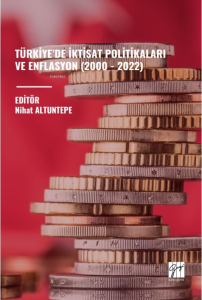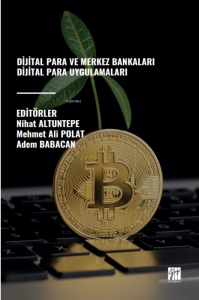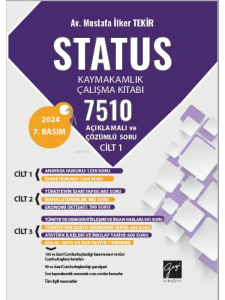9786258443356
732059

https://www.hesapli24.com/scientific-evaluation-of-economic-and-financial-issues-theory-and-practice-1
Scientific Evaluation Of Economic And Financial Issues: Theory And Practice
19.00
Anasayfa
/ Ekonomi
/ Araştırma-İnceleme-Kuram
Scientific Evaluation Of Economic And Financial Issues: Theory And Practice
Scientific Evaluation Of Economic And Financial Issues: Theory And Practicegazi kitabevi
Kolektif
Yorum Ekle
125,00 TL
103,75
TL
%
17
İNDİRİM
SEPETE EKLEAlışveriş Listeme EkleScientific Evaluation Of Economic And Financial Issues: Theory And Practice Hakkında BilgilerTürü: Araştırma-İnceleme-KuramSayfa Sayısı: 618ISBN: 9786258443356Boyut: 16 x 0Kapak: Ciltsiz
KolektifDaha fazla bilgiYazar Profili
ÜRÜN ÖZELLİKLERİÖDEME SEÇENEKLERİ
Scientific Evaluation Of Economic And Financial Issues: Theory And Practice Kısa Özet
İçindekiler
• Institutional Economics and Economic Crises
• Reflections of Nuclear Energy Consumption on Economic Growth a Panel Data Analysis
• Defending Democracy Against Autocracy: Income - Consumption Relationship According to the “Polity V” Assessment
• Did Global Financial Crisis Change the Emerging Economies' Convergence Clubs?
• Steering the Natural Gas Markets by Economic Policies: Is There Any Policy Issue in Turkish Gas Market?
• Are Shocks to Foreign Direct Investment in Developing Countries Permanent or Temporary?
• Determinants of Renewable Energy Use in Energy-Importing Emerging Economies
• Unemployment Hysteresis from Historical Perspective
• Workers' Remittances and Investment: A Case Study for South Asian Economies
• Testing The Purchase Power Parity Hypothesis for G7 Countries
• Causal Linkages Between Financial Development and Income Inequality
• The Environmental Performance of EU Countries and Turkey: Evidence from Multiple Criteria Decision-Making Tools
• Comparison of the Economic Performances of New Industrialized Countries with Improved Entropy Based TOPSIS Method
• Firm-Related Characteristics, Regional Factors and Female Employment in Turkey
• Testing the Twin Deficit Hypothesis and Asymmetric Causality for Fragile Five Countries Using a Nonlinear Autoregressive Distributed Lag Model
• How Turkish Firms Choose Currency Invoicing in International Trade
• The Role of Gender in the Effect of Employment on Divorce: Dynamic Panel Data Analysis
• Approaches of Defence Industry Companies to Cooperation with Army and Universities in Turkey
• The Short and Long-Run Effects of Developments in the Logistics Sector on Economic Growth in Turkey
• The Impact of the Covid-19 New Cases and Quarantine Restrictions on Unemployment Rate in G7 Countries
• How Does the Space Impact Voting Behaviour? An Analysis from Turkish General Elections
• The Impact of Crude Oil Prices on Exchange Rate in Turkey
• Risk Spillovers from Uncertainty Index to Major Cryptocurrencies
• Changing Employment Patterns under Neoliberal Economic Policies: An Overlook of the Labor Statistics, 2015
• Evaluation of Foreign Trade Analysis of Turkey and European Union Countries with Multi-Criteria Decision-Making Methods
• Behavioural Finance Biases and Temperament-Character Traits Relationship
• Adaptive Market Hypothesis: An Overview
• Is There Holy Day Effect on Stock Market Returns? Evidence from Borsa Istanbul
• Are Greenhouse Gas Emissions Policies in the EU Effective? An Empirical Research on Major Transport Modes
• Analysis of the Effect of Working Capital Management on Firm Performance in Turkish Manufacturing Sector
• Evaluating Financial Performance of Iraqi Banks: A CAMELS Analysis
• Digital Currency Transformation of Central Banks: The Case of Turkey
• What Drives the Non-Performing Loan Rates of Islamic and Conventional Banks? A Comparative Analysis Based on Panel Regression
• Does CO2 Emissions Differ According to Ship Type?
• Dynamic Transmissions Between Oil Specific Shocks and Financial Stress: Evidence from the Euro Area
• The Responsiveness of Tax Revenue to Economic Growth in Turkey
• Relation of International Migration and Foreign Direct Investment: Example of Turkey
Anasayfa
/ Ekonomi
/ Araştırma-İnceleme-Kuram
Scientific Evaluation Of Economic And Financial Issues: Theory And Practice
Scientific Evaluation Of Economic And Financial Issues: Theory And Practicegazi kitabevi
Kolektif
Yorum Ekle
125,00 TL
103,75
TL
%
17
İNDİRİM
SEPETE EKLEAlışveriş Listeme EkleScientific Evaluation Of Economic And Financial Issues: Theory And Practice Hakkında BilgilerTürü: Araştırma-İnceleme-KuramSayfa Sayısı: 618ISBN: 9786258443356Boyut: 16 x 0Kapak: Ciltsiz
KolektifDaha fazla bilgiYazar Profili
ÜRÜN ÖZELLİKLERİÖDEME SEÇENEKLERİ
Scientific Evaluation Of Economic And Financial Issues: Theory And Practice Kısa Özet
İçindekiler
• Institutional Economics and Economic Crises
• Reflections of Nuclear Energy Consumption on Economic Growth a Panel Data Analysis
• Defending Democracy Against Autocracy: Income - Consumption Relationship According to the “Polity V” Assessment
• Did Global Financial Crisis Change the Emerging Economies' Convergence Clubs?
• Steering the Natural Gas Markets by Economic Policies: Is There Any Policy Issue in Turkish Gas Market?
• Are Shocks to Foreign Direct Investment in Developing Countries Permanent or Temporary?
• Determinants of Renewable Energy Use in Energy-Importing Emerging Economies
• Unemployment Hysteresis from Historical Perspective
• Workers' Remittances and Investment: A Case Study for South Asian Economies
• Testing The Purchase Power Parity Hypothesis for G7 Countries
• Causal Linkages Between Financial Development and Income Inequality
• The Environmental Performance of EU Countries and Turkey: Evidence from Multiple Criteria Decision-Making Tools
• Comparison of the Economic Performances of New Industrialized Countries with Improved Entropy Based TOPSIS Method
• Firm-Related Characteristics, Regional Factors and Female Employment in Turkey
• Testing the Twin Deficit Hypothesis and Asymmetric Causality for Fragile Five Countries Using a Nonlinear Autoregressive Distributed Lag Model
• How Turkish Firms Choose Currency Invoicing in International Trade
• The Role of Gender in the Effect of Employment on Divorce: Dynamic Panel Data Analysis
• Approaches of Defence Industry Companies to Cooperation with Army and Universities in Turkey
• The Short and Long-Run Effects of Developments in the Logistics Sector on Economic Growth in Turkey
• The Impact of the Covid-19 New Cases and Quarantine Restrictions on Unemployment Rate in G7 Countries
• How Does the Space Impact Voting Behaviour? An Analysis from Turkish General Elections
• The Impact of Crude Oil Prices on Exchange Rate in Turkey
• Risk Spillovers from Uncertainty Index to Major Cryptocurrencies
• Changing Employment Patterns under Neoliberal Economic Policies: An Overlook of the Labor Statistics, 2015
• Evaluation of Foreign Trade Analysis of Turkey and European Union Countries with Multi-Criteria Decision-Making Methods
• Behavioural Finance Biases and Temperament-Character Traits Relationship
• Adaptive Market Hypothesis: An Overview
• Is There Holy Day Effect on Stock Market Returns? Evidence from Borsa Istanbul
• Are Greenhouse Gas Emissions Policies in the EU Effective? An Empirical Research on Major Transport Modes
• Analysis of the Effect of Working Capital Management on Firm Performance in Turkish Manufacturing Sector
• Evaluating Financial Performance of Iraqi Banks: A CAMELS Analysis
• Digital Currency Transformation of Central Banks: The Case of Turkey
• What Drives the Non-Performing Loan Rates of Islamic and Conventional Banks? A Comparative Analysis Based on Panel Regression
• Does CO2 Emissions Differ According to Ship Type?
• Dynamic Transmissions Between Oil Specific Shocks and Financial Stress: Evidence from the Euro Area
• The Responsiveness of Tax Revenue to Economic Growth in Turkey
• Relation of International Migration and Foreign Direct Investment: Example of Turkey
Yorum yaz
Bu kitabı henüz kimse eleştirmemiş.




















